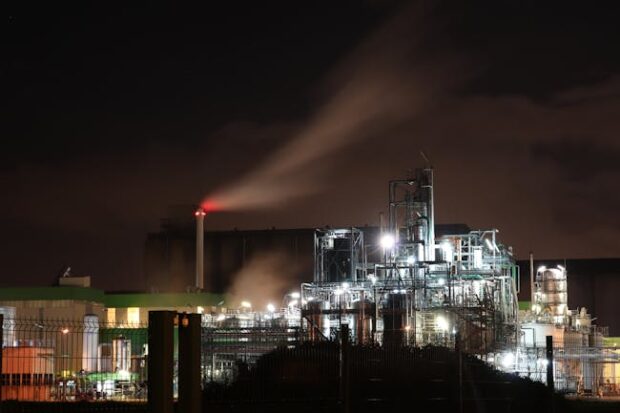Only 7 countries meet WHO air quality standards
The modern world’s progress leaves a significant amount of pollution worldwide, making it harder to access clean air. In response to this, some countries have deployed measures to try and reduce their carbon footprint.
However, the latest research shows that more is still needed to save the environment. The Swiss air-monitoring company IQAir said only seven countries meet the World Health Organization’s (WHO) air quality standards.
READ: Why air quality is a global concern
These countries are Australia, Estonia, Finland, Grenada, Iceland, Mauritius, and New Zealand.
More information about the global air quality report
Forests are vital for clean air and climate resilience. Meanwhile, only seven countries meet the air quality standard of @WHO & @IQAir. Though forests can't fix air quality alone, their significance is often overlooked in funding and planning. Let's appreciate them on #ForestDay! pic.twitter.com/QRX52WqiqD
— WHO Foundation (@WHOFoundation) March 21, 2024
The WHO has encouraged countries to reduce airborne particulate matter (PM) to 5 µg/m3 annually.
The California Resources Board defines PM as “particles that are 2.5 microns or less in diameter.”
However, only the countries mentioned above met these standards. In 2023, Central and South Asia had the top ten most polluted cities in the world.
Begusarai, India was the most polluted metropolitan area in that year. Also, Canada was logged as the most polluted in Northern America for the first time in history.
The most polluted countries were Bangladesh, Pakistan, India, Tajikistan, and Burkina Faso.
“A clean, healthy, and sustainable environment is a universal human right,” IQAir CEO Frank Hammes said.
“In many parts of the world, the lack of air quality data delays decisive action and perpetuates unnecessary human suffering. Air quality data saves lives. Where air quality is reported, action is taken, and air quality improves,” he added.
“IQAir’s annual report illustrates the international nature and inequitable consequences of the enduring air pollution crisis,” Greenpeace International Senior Air Quality Scientist Aidan Farrow stated.
“Local, national, and international effort is urgently needed to monitor air quality in under-resourced places, manage the causes of transboundary haze, and cut our reliance on combustion as an energy source,” he said.
Why do developing countries struggle with poor air quality?

The air filtration company Camfil explained that developing nations struggle to improve air quality because they are still facing challenges that developed countries have already solved. Consequently, they sacrifice higher pollution to boost their economies.
“Developing nations are less likely to invest in cleaner sources of energy because these renewable resources tend to be more expensive to procure than cheap and readily available fossil fuels like coal,” the company’s Vice President for Sales Kevin Woods said.
Dirty but cheap energy sources like coal are more viable for developing nations. Eventually, these could help them industrialize enough to pursue renewable alternatives.
However, they are more likely to keep using fossil fuels to continue expansion.
READ: The growing threat of light pollution
“It is projected that over the next decade, most of the growth that will occur in developed countries will happen in urban areas within the poorest countries of the world, with many of the countries located in Asia,” said Wood.
“These rapidly expanding urban centers will be major sources of pollution, and consequently efforts to combat emissions will require that these rapidly growing areas find some way to keep growing despite lowering their overall emissions,” he added.
Hence, Wood believes developing countries will “require the assistance of developed nations who have the resources, structure, and technology to support eco-friendly growth in developing countries struggling with air pollution.”